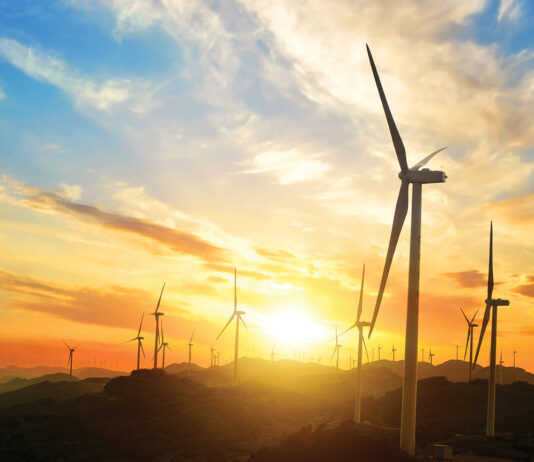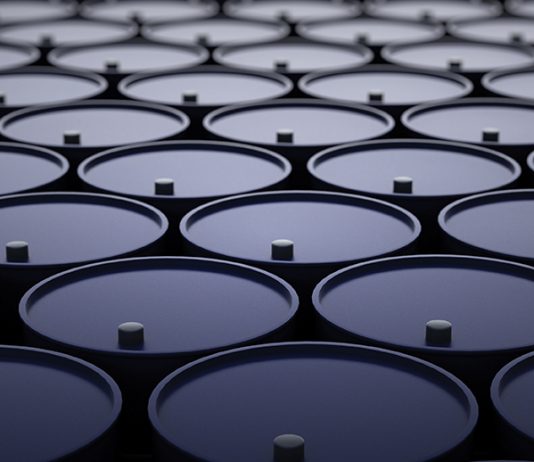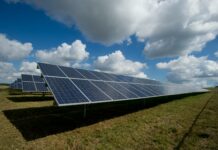
The U.S. has long relied on the United Arab Emirates (UAE) for its oil and gas, which it produces under the OPEC intergovernmental organization of 13 oil-exporting nations. However, it appears that the connection between the two states will go deeper than just fossil fuels as the two powers reach an agreement on renewables and the future of energy.
The U.S. announced this month that it has reached an agreement to spend $100 billion on clean energy projects, in a scheme entitled the “Partnership for Accelerating Clean Energy” (PACE). It aims to add 100 GW of green energy worldwide by 2035. The Biden Administration and the government of the UAE signed a memorandum of understanding in Abu Dhabi, marking “an important step forward in our joint efforts to accelerate our collective movement toward clean energy,” U.S. Secretary of State Antony Blinken explained.
The two countries will work together to provide technical, project management, and funding assistance for commercial renewable energy projects across several countries. This move is expected to encourage more significant investment in clean energy projects around the globe, particularly in new energy technologies. It is also expected to support the development of renewable energy projects in the developing world, which are likely to lag behind richer economies unless greater funding and expertise are provided – a challenge that the U.S. Climate Envoy John Kerry addressed at the COP27 climate summit.
Some of the areas that the funding is expected to support are clean energy innovation, carbon and methane management, advanced reactors including small modular reactors, and industrial and transport decarbonization. It will also support the development of responsible and resilient supply chains and encourage greater funding for sustainable mining and mineral production to support the green energy transition.
The U.S. sees this move as a strategic partnership, deepening its ties with the UAE for a future of energy beyond fossil fuels. The UAE government stated “The cooperation comes within the framework of the close friendship between the UAE and the United States of America” and “affirms the commitment of both sides to work to enhance energy security and advance progress in climate action.”
Meanwhile, the White House said, “Today President Biden again demonstrated his deep commitment to ensuring a global clean energy future and long-term energy security as the United States and the United Arab Emirates announced a robust partnership to ensure the swift and smooth transition toward clean energy and away from unabated fossil fuels.”
The Biden Administration has made significant strides in its renewable energy policy this year, demonstrating its commitment to combatting climate change. The Inflation Reduction Act (IRA), announced in August, provides a large amount of investment for renewable energy projects and supporting technologies. Energy firms investing in renewables will be offered tax incentives and grants, as will industries looking to make the shift from fossil fuels to green alternatives. The IRA supports America’s aims for net-zero carbon emissions by 2050, as well as its pledges at the COP26 and COP27 summits.
Similarly, the UAE has been rapidly developing its renewable energy capacity. Earlier this year, the UAE government released its Power Market Outlook to 2035, which provides historical and forecast numbers for capacity, generation, and consumption up to 2035. The country has big plans for pumped hydro energy and solar power, with plans to build the world’s largest single-site solar power plant as well as the first nuclear power plant in the Arab world. It is also expected to host the COP28 climate summit next year.
The U.S. is already closely connected to the UAE through its long-standing relationship with OPEC, which it relies on for much of its oil and gas supply. While its partnership has been rocky in recent months, as OPEC was slow to boost crude production following the pandemic and recently announced production cuts as Europe and North America head into the high-demand winter months, the two powers have worked together in energy over several decades. In addition, the two countries have extensive experience in fossil fuels, and both have a growing expertise in renewable energy. Located on opposite sides of the world, each power can bring something different to the table, providing the knowledge and experience needed to support the development of renewable energy projects in different country settings.
Developing on their already well-established energy relationship, the U.S. and UAE will use the new PACE scheme to encourage investment in a multitude of clean energy projects worldwide. The agreement is expected to encourage further funding for green energy innovation and technology, to be rolled out in a variety of settings, helping to advance the global transition away from fossil fuels to renewable alternatives.

Felicity Bradstock is a freelance writer specializing in Energy and Industry. She has a Master’s in International Development from the University of Birmingham, UK, and is now based in Mexico City.
If you would like to contact our staff writers, you can reach them at [email protected]
Get the Real Story with Shale Magazine
At Shale Magazine, our sole mission is to look at the facts from an objective angle and report on current events that matter most to energy industry stakeholders. Shale Magazine offers fresh insights into every issue by never shying away from a story and sticking with the facts. Make sure to check out our latest issues to stay in the know about all things energy. You’ll find great opportunities for networking and events, exclusive interviews and one-on-ones with top industry execs, and all the latest news from upstream, midstream, and downstream.
















